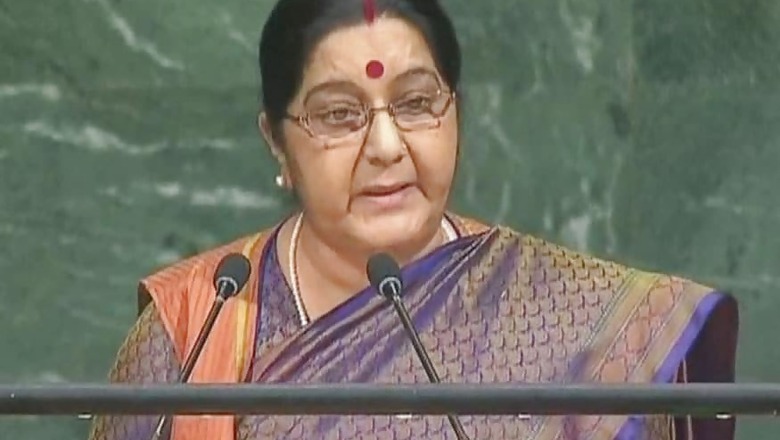
views
New Delhi: External affairs minister Sushma Swaraj on Thursday said India’s interests in the Indo-Pacific region were vast and that the region needed to remain free and open.
"Our interests in the Indo Pacific are vast and engagement is deep. Our vision is one word- SAGAR. The Indo Pacific must be open, free and an inclusive region. It should follow a common, rules-based order that takes into account equality for all. India wants to build bridges of trust," she said. Swaraj was speaking at the Delhi Dialogue.
The minister further said that the Indo-Pacific must allow growth for all, irrespective of size and strength. She also batted for equal access becoming a right under international law.
Swaraj said that India and ASEAN will play a vital role in the new global order. "As Asia regains it's global position, for the 21st century to be called Asia's century, it goes without saying that India and ASEAN will play a vital role in ensuring this," the minister further said.
The minister added that Indian engagement was deep rooted in the region, especially with it's Act East policy and that India placed ASEAN at the centre of it's dream of an Asian century.
The statements come just a week after India and China held their second maritime security dialogue here during which the Indian side elaborated on its vision for the Indo-Pacific region as articulated in Prime Minister Modi's keynote address at this year's Shangri-La Dialogue in Singapore.
Earlier in the day, MoS VK Singh said that the government's Act East Policy was a leap forward from the Look East policy.
"We have evolved to include various pillars of ASEAN-India relations. Act East policy is wider in scope," he added.
Foreign minister of Singapore, Vivian Balakrishnan, too, voiced his concerns over maritime threats and the need to protect the Indo-Pacific. Adding that his country advocates a rules-based order, Balakrishnan said Singapore supported the freedom of navigation as an existential right. "Singapore will condone anyone who threatens this fundamental right of freedom of navigation," he added.




















Comments
0 comment